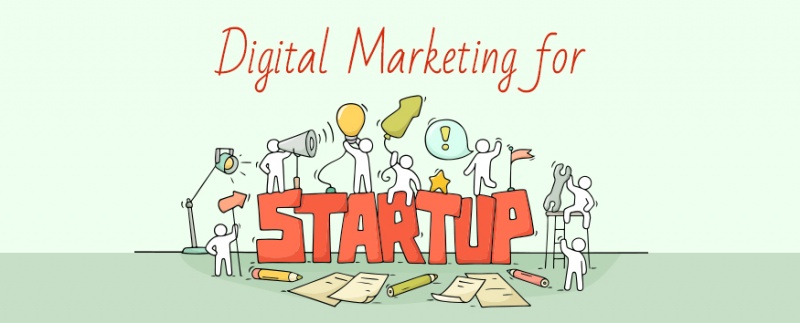5 Affordable Marketing Tips for Startups - Business2Business
Contrary to popular belief, marketing is very affordable and scalable. There are tons of examples of good marketing regardless of the amount of business, whethe
- by B2B Desk 2020-12-28 05:30:25
Marketing may not seem the most compelling, especially when you are at an early start-up stage, trying to build and define your product.
Contrary to popular belief, marketing is very affordable and scalable. There are tons of examples of good marketing regardless of the amount of business, whether you have a modest media budget or thousands of dollars to spend. Marketing in the early stages of a startup has many proven benefits, including that when you have a large marketing budget, you already know which channels are most effective in customer acquisition and sales. It's important to know this up front, because startups tend to grow quickly. Before you know it, you have a huge budget to spend on marketing. So without further ado, here are five affordable marketing tips for startups.

Content marketing is free
Content marketing costs you nothing, but it can be just as rewarding as paid ads. Get started blogging right away. Use long tail keywords to surface even without paid search ads. If you don't already have a website, create an account with Medium, LinkedIn, or an industry-specific content publisher to publish blog posts and attract a following.
Launch social campaigns with free tools
Take advantage of all the free tools available on all social media platforms. Facebook offers free marketing tools dedicated to small businesses. For example, automating Facebook Messenger FAQs can reduce customer service response times and help them get the information they need to make a direct purchase when they need it.

Use keywords to reach customers
Each brand must have a list of keywords to reach the target audience. Since there is now a large amount of content available online, some companies also use long-tail keywords to reach customers.
Keyword research requires diligence. Businesses should define their keywords first and then conduct a weekly review of the position of company-owned pages on the search engine results page for each particular keyword. For example, a yoga studio tries to reach a wider audience through keyword research. The studio is located in Denver, Colorado, and students can reserve a semester on their website. The studio will maintain a list of keywords such as "Denver yoga" and "Denver yoga classes" and will Google it to see the ranking of its website each week. If your website is in the top five on the search results page, that means the study has a strong search engine optimization (SEO) strategy. They can keep crawling these keywords on Google and sign up for a spreadsheet as their eCommerce site ranks every week. The keywords mentioned above are "Denver Yoga" and "Denver Yoga Lessons" are timeless. Seasonal keywords may include "Denver Outdoor Yoga Class" or "Zoom Yoga Class" in response to COVID-19.
Paid Marketing: Start Small But Start Early
Paid and social search are two important components of paid marketing campaigns, but you don't need a big budget to get started. It's okay if you don't have the budget for them yet. As you know, you can create business accounts on social media platforms 100% free. Get started with organic actions on social media and learn a thing or two about your audience. Then start with small offers, A / B testing regularly, and focus on identifying the right niche for your business - the most effective channels, content types, and target demographics. This way, when you start to grow rapidly and suddenly get thousands of dollars from your marketing budget, you know exactly the right combination of strategies that will give you the highest ROI.
Implement geo-targeting elements
Attracting local customers is extremely important when you have a physical store. But did you know that geo-targeting elements are just as important for non-local businesses?
For example, there is an educational technology startup that connects college students with high school students for private tutoring. As it is new, they first hire the professors and look for those enrolled in US universities. To help in the hiring process, the company wants to share teacher testimonials.
Also Read: GST rules tightened to curb tax evasion amid revenue deficit
POPULAR POSTS
Pine Labs IPO 2025: Listing Date, Grey Market Premium, and Expert Outlook
by Shan, 2025-11-05 09:57:07
India’s Largest Unicorn Startups in 2025: Rankings, Valuations, and Trends
by Shan, 2025-09-18 10:32:48
Swiggy Launches Toing App in Pune to Serve Affordable Food Delivery — What It Means for the Market
by Shan, 2025-09-16 12:29:08
Trending Startup Ideas for 2025: Where Innovation Meets Opportunity
by Shan, 2025-09-05 11:56:43
19 Best Business Ideas to Start in India 2025: From Low Investment to High Demand
by Shan, 2025-09-03 10:58:15
Razorpay Business Model Explained: How the Fintech Giant Makes Money in India
by Shan, 2025-08-05 12:10:28
How CRED Reimagined Credit Card Rewards into a Billion-Dollar Fintech Empire
by Shan, 2025-08-04 12:28:03
RECENTLY PUBLISHED

Loan EMIs to Drop as RBI Slashes Repo Rate - Full MPC December 2025 Highlights
- by Shan, 2025-12-05 11:49:44

The Agentic Revolution: Why Salesforce Is Betting Its Future on AI Agents
- by Shan, 2025-11-05 10:29:23

Top 10 Insurance Companies in India 2026: Life, Health, and General Insurance Leaders Explained
- by Shan, 2025-10-30 10:06:42

OpenAI Offers ChatGPT Go Free in India: What’s Behind This Big AI Giveaway?
- by Shan, 2025-10-28 12:19:11

Best Silver Investment Platforms for 2025: From CFDs to Digital Vaults Explained
- by Shan, 2025-10-23 12:22:46





 Subscribe now
Subscribe now 